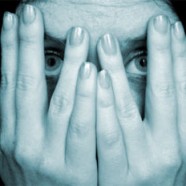Depression Types
Here is my personal view of the different personalities of depression, and possible treatments for each of them. The most prescribed antidepressants today belong to a group of medications called the SSRIs. To this group belongs Prozac, Effexor, Zoloft, Celexa, Lexapro, Paxil and others. Depression (excluding psychotic depression) seems to come in two flavors: low energy depression or its anxious cousin. The type of depression you are experiencing should dictate your choice of medication. In addition to recommending psychotherapy, which is a crucial treatment component for sufferers of depression, when you come to me as a patient, I may decide to prescribe one of the SSRIs. In my view, it is important to match the pharmacologic effect of a particular medication with the type of depression being experienced. The SSRIs each have their specific spectrum of effects. Prozac and Effexor tend to energize patients. Paxil, on the other hand, often has a calming effect. Zoloft, Celexa and Lexapro produce a more neutral effect. They may energize or calm, depending on a patient’s own biochemistry and sensitivity. Therefore, if you come to me with an anxious depression, I would probably prescribe one of the middle-of-the-road antidepressants or I might prescxribe Paxil to calm your anxiety. Taking a more calming antidepressant may also keep you from having to take a sedating medication such as Ativan, Xanax, Buspar or Valium, as the calming effect you are looking for is already built into those particular SSRIs. For the low energy depression, on the other hand, Prozac and Effexor might work better. Usually, I try to avoid giving an anxious patient an energizing SSRI because they may experience the energizing effect as an increase in anxiety. Obviously, this is something we will try to avoid. Despite the science involved, prescribing psychiatric medications is still an art where intuition and experience play an important role in making the right choice. Every physician will approach this task differently and each patient’s body and mind will respond differently. It is important to keep this in mind as you and your physician search for the correct medication that will relieve your unwanted symptoms of depression. In the end, your body and mind will make the best...
Read MoreAnxiety, A Stumbling Block
Anxiety: The Secret Stumbling Block in Depression Therapy Depression ranges in severity from mild and transient to severe and persistent. The most severe form of depression is called Major Depressive Disorder and may be difficult to treat and resolve. It poses a number of severe risks, not the least of which is that of possible suicide. Depression is also associated with significant medical problems such as heart disease and pain syndromes, to name a few. For this and other reasons, successful treatment is crucial. There are several theories as to what causes this debilitating mental illness. Life stress, anxiety and a predisposing vulnerability are thought to be contributing factors. An additional component is the biochemical changes in the brain, particularly changes in neurotransmitters such as serotonin. Serotonin depletion and its reversal is the rationale for the use of SSRI class of medications. An important component in the origin and course of depression is anxiety. Anxiety is reported by patients on a routine basis but is easily and commonly overlooked. In practice, this component of depression must be addressed if treatment is to succeed. I often wonder how many treatment failures are due to this oversight. An indicator that this oversight is common is the number of patients who are placed on antidepressants such as Prozac or Effexor for treatment of depression. These medications are known to be energizing; they can act like several cups of very strong coffee, not a welcome effect for someone who is already anxious. These two medications in particular are usually more appropriate for someone with a low-energy depression rather than an anxious depression. The anxiety component of depression is often not recognized, or even if recognized, is not taken into account in treatment. Resolution of anxiety can often be an essential component of treatment before depression can be...
Read More

